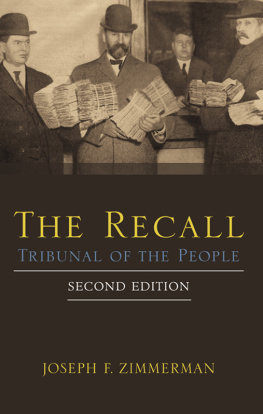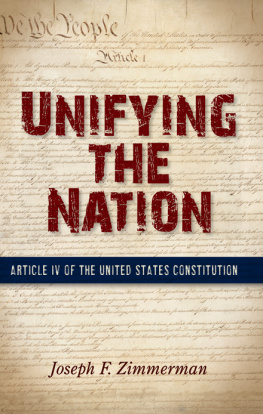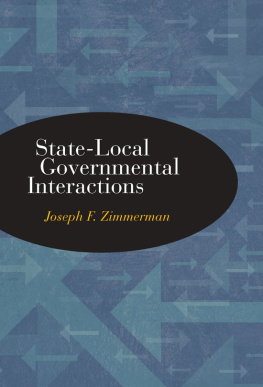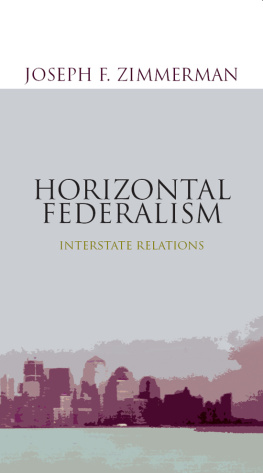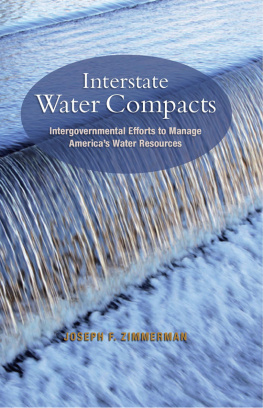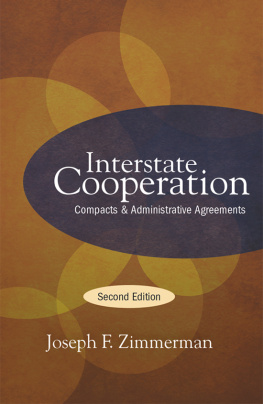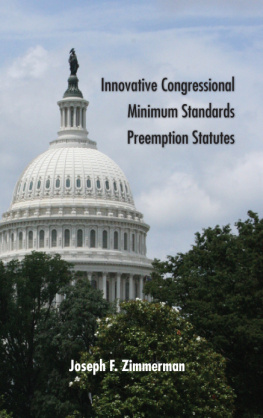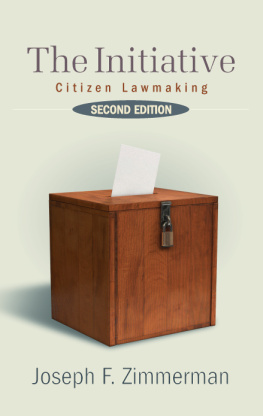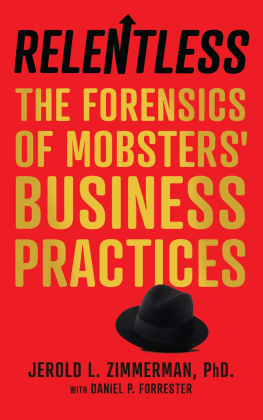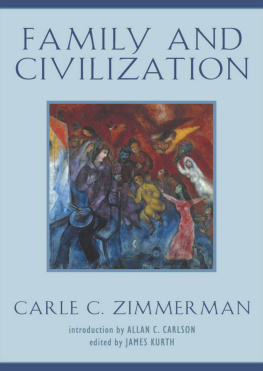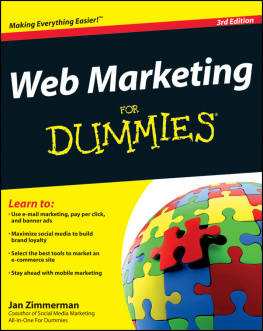The Recall
Tribunal of the People
Second Edition
JOSEPH F. ZIMMERMAN
Cover image: Presenting recall petitions against Seattle, Washington mayor
Hiram Gill [December 1910]. McClures, October 1911, pp. 65253.
Published by State University of New York Press, Albany
2013 State University of New York
All rights reserved
Printed in the United States of America
No part of this book may be used or reproduced in any manner whatsoever without written permission. No part of this book may be stored in a retrieval system or transmitted in any form or by any means including electronic, electrostatic, magnetic tape, mechanical, photocopying, recording, or otherwise without the prior permission in writing of the publisher.
For information, contact State University of New York Press, Albany, NY
www.sunypress.edu
Production by Eileen Nizer
Marketing by Michael Campochiaro
Library of Congress Cataloging-in-Publication Data
Zimmerman, Joseph Francis, 1928
The recall : tribunal of the people / Joseph F. Zimmerman. Second edition.
pages cm
Includes bibliographical references and index.
Summary: In-depth study of the recall, the most important popular device allowing voters to remove unresponsive elected officials from officeProvided by publisher.
ISBN 978-1-4384-4925-8 (hardcover : alk. paper)
1. RecallUnited States. I. Title.
KF4884.Z56 2014
324.6'80973dc2
2013002459
10 9 8 7 6 5 4 3 2 1
For Peggy with love and appreciation for her support
Contents
1
The Sovereign Citizen
2
The Legal Foundation
3
Recall of State Government Officers
4
Recall of Local Government Officers
5
The Recall: An Evaluation
6
A Model for Voter Sovereignty
List of Illustrations
Tables
Figures
Preface
The recall is a participatory device allowing voters by means of petitions to place the question of removing an elected public officer on the ballot before the expiration of the term of office, thereby recognizing the electorate as the fountainhead of sovereign power. This corrective device was unconventional when first adopted in 1903 as a democratic process modifying the representative principle and immediately generated intense public controversy about the nature of representative government. Many elected officers strongly opposed adoption of the recall by contending representative government will be undermined if the participatory device is adopted.
Surprisingly, relatively little has been published on the recall during the past nine decades. The first edition of this book was the first one since 1912 devoted to a national examination and evaluation of the recall subsequent to its employment in 1903 in Los Angeles to remove a member of the city council.
The recall reflects a long history of distrust of public officers dating to Jacksonian democracy with its emphasis on electing all public officers for short terms and voter ratification of constitutional restraints on actions by state legislatures in the nineteenth century in reaction to scandals associated with canal building and railroad building.
There can be no doubt that the plebiscite trinitythe recall and its often associated protest referendum and initiativeencourage voters to shadow government officers and play a more informed and important role in the governance process. Progressive leader Robert M. La Follette referred in 1920 to the admonitory effect of the plebiscitary devices by noting they will prove so effective a check against unworthy representatives that it will rarely be found necessary to invoke them. His prediction was an accurate one and suggests that Res Publica (the public good) is the principle guiding most elected public officers.
Where authorized, the recall is either a process to be employed only for legal cause with judicial safeguards for the targeted public officer or as a political question with voters acting as a tribunal that determines the fate of the officer with no judicial appeal if the voters decide to remove the officer.
Collecting data and information on the recall of elected state public officers is not difficult because there have been relatively few such recall elections and there is a central repository of data in each state. Collecting data and information on the recall of local government elected officers, in contrast, is a difficult task because of the lack of central repository on recall elections in states where the device is authorized. There is no count of the total number of local governments where the recall can be employed. Its use is authorized by voters in certain types of local governments in several states by a constitutional provision, or by a general statute, or by special statutes for individual local governments, or by home rule charters.
A relatively small number of nation-states have adopted the recall as illustrated by its recent use in the Republic of China, Romania, and Venezuela. The three major political parties in the United Kingdom included in their manifestos (platforms) for the 2010 general election a promise to introduce a type of recall for Members of Parliament (MPS).3 On December 13, 2011, the Conservative-Liberal Democrats Coalition Government published a white paper and a draft bill authorizing the recall of MPs.
I anticipate the popular participatory device of the Recall gradually will be adopted by an increasing number of nation-states.
A debt of gratitude is owed to Addie Napolitano for her expert preparation of the manuscript for publication. I also acknowledge with gratitude the assistance of Barbara Mathews in gathering data and information for inclusion in this volume.
Chapter 1
The Sovereign Citizen
The recall is a process for removing a public officer from an elective office before expiration of his or her stipulated term of office. The process begins when removal proponents file petitions containing the required number of valid signatures with the designated officer responsible for conducting a special election to determine whether the officer should be removed from office for specified reasons. A recall election, also known as a recall referendum, is based on the gun behind the door theory positing elected office holders must be kept continuously responsible to the voters. Such an election may be limited to the question of removing the targeted officer or also may involve the selection of a replacement in the event the officer is removed.
A constitutional or a statutory provision in twenty-six states authorizes the recall. Additionally, the state legislature in several states, for example, Connecticut, has enacted special acts authorizing specific local governments to use the recall. Home rule constitutional provisions in several other states, such as Massachusetts, allow general purpose local governments to draft and adopt charters authorizing the electorate to employ the recall, and other local governments in these states have employed home rule powers and amended their existing charters to provide for the recall.
The 2012 Census of Governments revealed there were 89,004 local governments: 38,917 general purpose local governments, and 50,087 special purpose governments in the United States.



